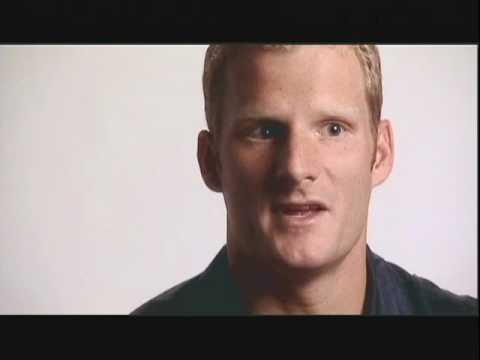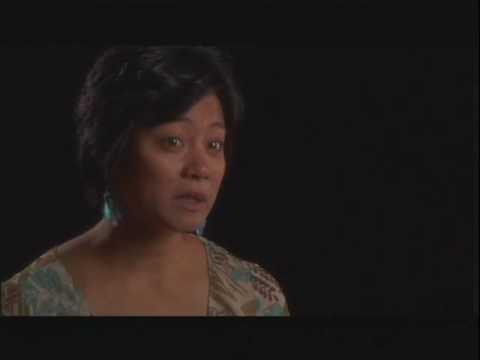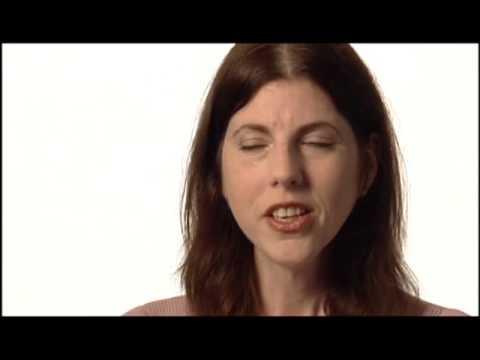I became a survivor when I was diagnosed in June 1995.
I’d been a cyclist prior to being diagnosed with cancer. I felt some kind of sensitive area on my testicle, and thought maybe I just hit a pothole and that it was a contusion. I gave it a couple of weeks, and I noticed that instead of healing, I detected a lump. The lump was actually changing shape and size. It went from being a soft lump to a harder lump. I still held out hope in the back of mind that maybe this was still a sports-related injury. As another couple of weeks went by, I realized it was not healing, and my wife actually pushed me to go to the doctor. We both realized that it was probably not going to resolve on its own.
I went to my family practitioner. He took one look at me and referred me to a specialist. The urologist then did an ultrasound, and confirmed that there was a mass but couldn’t identify what the mass was. After some conversations, he decided that the most appropriate thing to do was the orchiectomy, which was to remove the testicle, because they do the biopsy after the surgery. So that’s what we did.
I was pretty fortunate that we caught it early because it had not become metastatic. It was confined to the testicle. It was diagnosed as Stage 1, so I was actually given an option of either chemotherapy or watching and waiting. I decided watching and waiting, the “do-nothing” attitude as I call it, was not appropriate. We really wanted to make sure that we got everything. We wanted to kill all the cancer cells. We didn’t know how many were floating around. We wanted to get them all. So we opted for two cycles of the standard cisplatin-based chemotherapy treatment.
There are a lot of men out there who are diagnosed with testicular cancer who die because they don’t detect it early. They don’t go for early treatment. As a result, it becomes a fatal disease. That’s something that is really, truly preventable, and we’d like to see that not occur. We are very fortunate, and we have two children now, post cancer. They’re something you can hold and say, “I beat cancer,” and I have these little kids to look at and really celebrate.
When we got the diagnosis, I went for three opinions, talking to three different oncologists about what the next steps would be. I’m really happy to note that all three of them talked about the fertility issues around the chemotherapy that’s used. All three suggested that I go ahead and bank sperm. So we did that. They were actually great. They explained the procedure, and were really sympathetic considering the circumstances of why I was there. Afterwards, when we decided that we wanted to have children, we went ahead and had those same tests done again to make sure that there were no fertility issues with me, based on the long-term effects of chemotherapy. This was about six years afterwards. And everything checked out okay. I’ve been really happy to see the communication about these issues increase in the last couple of years with a lot of efforts. I know LAF is involved in some efforts with Fertile Hope. I think it’s great that there’s a lot of collaboration to really have a broad-based program to educate and inform people about fertility issues related to chemotherapy or radiation. So again, I consider myself lucky in that regard.
It really gives you a perspective as to what’s important and what’s not important. It makes you think about, “What do I want to get out of life?” and “What do I want to achieve?” and “How important is material achievement versus achievement for the soul?” “How do you build your character and do those things?”
Getting involved with the Tour of Hope, for example, is something that is going to be one of the successes of being a cancer survivor. It’s not only being selected, but it was being physically healthy to do it and being able to train to do something that was so difficult but so rewarding. The mission of the Bristol-Myers Squibb Tour of Hope was to help, inform, and educate people all across the country about the benefits of cancer clinical trials.
For those people that may be recently diagnosed, consider clinical trials as a viable treatment option. There are a lot of cancers that don’t respond to the current, standard treatment. Clinical trials are the way to not only do additional research and find out what could work for some of those cancers, but it is a way to help develop new chemotherapeutic agents. A lot of people have misconceptions about cancer clinical trials. They think that they’re going to be guinea pigs. They think they have no control over their ability to go out of the treatment once they sign up. They think they’re signing their lives away. They’re also concerned about follow-up care after the trial is over. The Tour of Hope was about trying to educate people about what really happens in a clinical trial. To let them know about the different avenues that they can find out about clinical trials, and the resources that are available. It was also designed to engage doctors that don’t normally refer patients to cancer clinical trials. To let them know that there are their resources out there for them, so they can refer patients into a trial that might be appropriate for that patient.
I’m an advocate because Lance talked about the obligation of the cured, and he’s absolutely correct about that. You go through a cancer experience, whether you’re the patient or a caregiver, and you feel like you need to give back. You want to give back. You feel that there are thousands and millions of people that have gone before you, many of whom did not have a good outcome. They died from their cancer. You want people to have the best chance for survival possible. You get involved because you think, and want, and hope that you can make a difference. You get involved with different groups like the Lance Armstrong Foundation. You get involved with various efforts. You go out for a charity run to raise money for research.
We’re here this week to participate in Livestrong Day. Part of that effort is for us to have meetings with various Congress people, senators, and their staffers to talk about certain things that we’d like to see the government do. The government has a responsibility to fulfill its contract with the American people, and that’s the National Cancer Act. Through the National Cancer Institute, we try to see that the health and welfare of the American people - through research and treatment - is taken care of so that we can eliminate, or at least reduce the burden of, cancer. We need more money. We need more attention. We need more effort in all phases, in all aspects of the fight against cancer. We, as advocates, are coming here to be a unified voice in that message.
It’s our job to sit down and give them the personal story. Show them how cancer can personally affect you. Survivors and caregivers of survivors represent a very viable part of the economy, a viable part of our society. We’re going to tell Congress that we need more money. We don’t want to see budgets being leveled off or being reduced. We want to see increases in budgets. We want to see targeted efforts going to new research opportunities. We want to see new treatment opportunities. We want to see coordinated efforts in community-based treatment plans. We really want to see underserved and minority communities get the care that they deserve. They need to hear that from us because we’re representing those people.
It’s important for us to share our stories because when people hear the words, “You’ve been diagnosed with cancer,” there are still so many that think it’s an immediate death sentence. And it’s not. There are so many advances in treatments today that survivorship is really higher than it’s ever been before. Lance is such a motivating force. He’s out there, and he’s done something that nobody else has done before. He’s won six Tours in a row. He’s the first cancer survivor to win. He can show firsthand that you can be on the edge of death. You can have such a poor prognosis, recover, and then go on to do things.
Livestrong means taking the opportunity after you’ve gone through a cancer experience to live the life that you know you could. You get a second chance, and you should be able to go forward and do things that you’ve always wanted to do. Make the effort. You have your priorities straight. You have a different perspective and some things don’t matter that much anymore, and some things take on a whole lot of importance. It’s an opportunity for you to live that life.
My name is Steven Friedman, and I’m a ten-year testicular cancer survivor.


